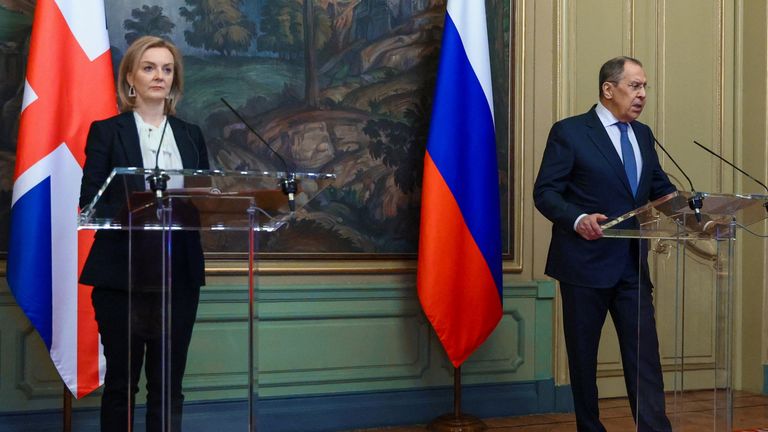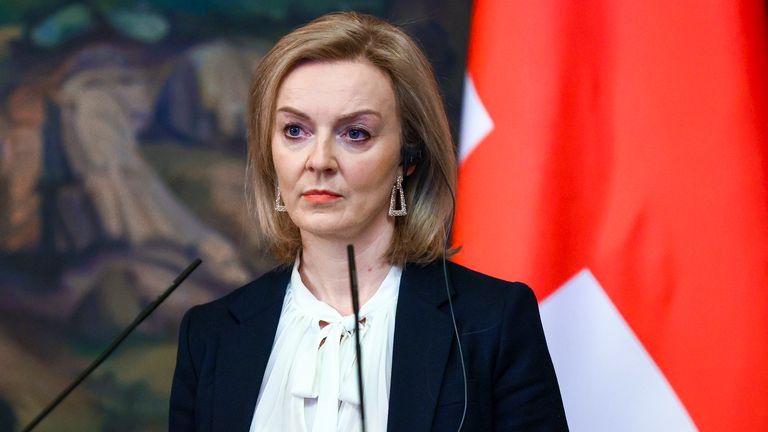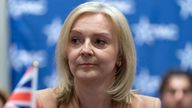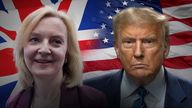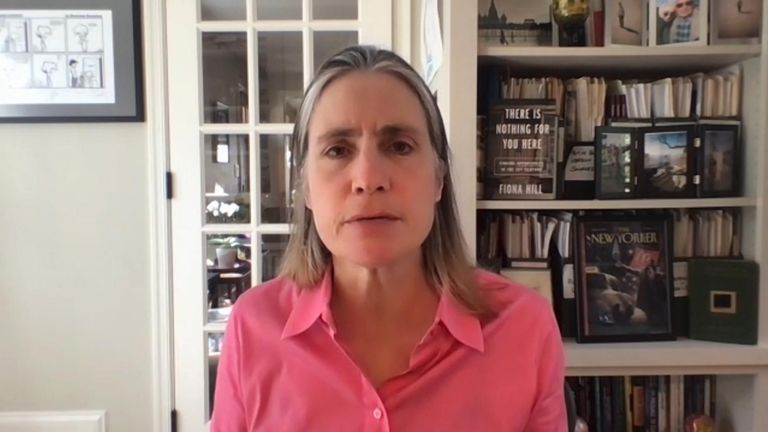Russia-Ukraine crisis: Ministers get new powers to sanction Russia after Liz Truss's stormy talks in Moscow with Sergei Lavrov
Foreign Secretary Liz Truss is involved in testy exchanges with her Russian counterpart Sergei Lavrov as they meet in Moscow. He characterises the meeting as a "conversation between a dumb and a deaf person".
Friday 11 February 2022 05:45, UK
The Foreign Office has signed off tougher sanctions on Russia just hours ahead of a self-imposed deadline - and after Foreign Secretary Liz Truss held stormy talks with her counterpart in Moscow.
New legislation was laid in parliament on Thursday that gives ministers the power to impose tough new sanctions on Russian oligarchs and businesses.
The Foreign Office said the legislation would allow the UK to sanction those linked directly to Russia's agitation over Ukraine, as well as Kremlin-linked organisations and businesses of "economic and strategic significance" to the Russian government.
This includes their owners, directors and trustees.
'A conversation between a dumb and a deaf person'
Earlier on Thursday, Ms Truss was involved in testy exchanges with her Russian counterpart Sergei Lavrov as they met in Moscow.
He characterised the meeting as a "conversation between a dumb and a deaf person".
"It seems like we listen but don't hear," he added.
"At least, our most detailed explanations fell on unprepared soil. They say Russia is waiting until the ground freezes like a stone so its tanks can easily cross into Ukrainian territory.
"I think the ground was like that today with our British colleagues - from which numerous facts that we produced bounced off."
But, pushing back against Mr Lavrov's statement, Ms Truss said: "I certainly was not mute in our discussions earlier.
"I put forward the UK's point of view on the current situation and the fact that, as well as seeking to deter Russia from an invasion into Ukraine, we are also very resolute in pursuing the diplomatic path."
She added there were "further talks to be had" between Russia and the West over the Ukraine crisis.
Foreign Office strives to meet self-imposed deadline
The foreign secretary had previously said that new sanctions legislation aimed at Russia would be "in place" by 10 February.
Critics questioned whether Thursday's announcement meant the Foreign Office had indeed met its own deadline.
Labour MP Chris Bryant said the legislation would "require a vote" in the House of Commons before becoming law.
He highlighted how MPs were now on recess for the next 10 days and without such a vote having taken place.
However, a Whitehall source stressed that existing post-Brexit sanctions legislation allowed ministers to bring in further powers with immediate effect.
Parliament will be asked whether to keep or scrap the new powers within the next 28 days, the source added.
Commenting on the new powers, Ms Truss said: "The UK is resolute in its support for Ukraine's sovereignty and right to self-determination.
"We urge Russia to de-escalate and choose the path of diplomacy. If Russia persists with its aggression towards Ukraine the UK and its partners will not hesitate to act."
The Foreign Office said the new Russia-focussed legislation would provide the framework for the strongest sanctions regime the UK has had against Russia.
Targets could include the country's chemical, defence, mining, oil, gas, communications and financial services industries.

